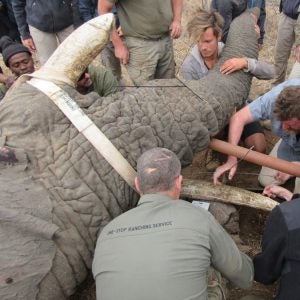-

Dmitry Oshchepkov/iStockphoto
Humane Society International welcomes the introduction of a bill revising Korea’s Act on the Registration and Evaluation, etc. of Chemical Substances (K-REACH) by National Assembly member Ms.Jeong-ae Han, with support from nine other assembly members.
Since coming into effect in 2015, the K-REACH has led to a disturbing increase in animal testing, including the needless repetition of more than 100 tests, contrary to the law’s intent that companies negotiate to share existing test data to minimize costs and animal use. Some companies are even investing in expanding animal testing capacity in anticipation of potential contracts for data production.
Key among the proposed changes include:
1. Elevation of ‘promotion of development and use of alternatives to vertebrate animal testing’ to a core objective of the K-REACH law (Article 1)
2. Stronger provisions for use and sharing of existing test data and avoidance of duplication (Article 17)
3. The requirement that animal testing be undertaken only as a last resort, after all alternative options are exhausted (Article 37-2)
The bill’s sponsor, Ms. Han, said, “Unreasonable use of animals just for human benefit, cannot be justified especially while alternatives are available. As included in the revised bill, providing alternative methods replacing animal use will advance 21st century science technology for the better future for the public and environment.”
In Korea, the number of animals used in testing increased by more than 55 percent since 2012 to an unprecedented 2.87 million animals in 2016. And some stakeholders seem to view K-REACH as an opportunity to create animal testing business for Korean GLP testing facilities, contrary to the law’s clear data sharing mandate.
HSI Policy Advisor Borami Seo said, “K-REACH was established to protect humans. This should not lead to unimaginable suffering of animals. The revised bill clearly states the principle of considering animal testing only as a last resort. With this bill, countless thousands of animals could be saved.”
The K-REACH amendments under consideration in the assembly were developed in consultation with HSI toxicology experts, who have been at the forefront of advocating for animal testing alternatives and data sharing under chemical laws in the European Union, United States, Australia and elsewhere. HSI has been working for the past two years to promote #ScienceWithoutSuffering in Korea, hosting numerous assembly forums including ‘21st Century Science’, ‘Importance of alternatives to animal testing in chemical sector’ and experts’ roundtable to discuss K-REACH revision. HSI has gathered more than 8,900 signatures in support of this goal from Korean politicians, celebrities and members of the public via its online petition at hsi.org/koreascience (Korean).
Link to K-REACH reform bill (Korean).
Media contact: Borami Seo +(0)2. 6376. 1405, bseo@hsi.org
























